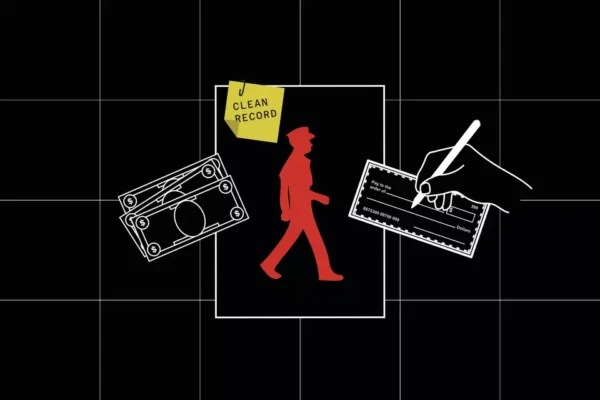How California police agencies dole out disability pensions to problem officers: Key takeaways from our investigation
By Katey Rusch. This story was originally published in The San Francisco Chronicle on September 18, 2024.

Under California law, police agencies are forbidden from dangling disability pensions as an inducement to rid themselves of problem officers. John Blanchard and Sophie D’Amato/The Chronicle
Few jobs are as dangerous as that of a police officer. Acknowledging this, California offers generous disability pensions to those who are so severely injured that they can no longer wear the badge.
But an investigation by the San Francisco Chronicle and UC Berkeley’s Investigative Reporting Program found that law enforcement agencies have, in many cases, doled out tax-free pensions as an expedient way to get rid of a problem employee — not because they acknowledge a grievous on-the-job injury.
Dozens of police departments and sheriff’s offices have used the disability retirement system to essentially “pension off” officers who are accused of misconduct. Some city and county leaders even admit to encouraging officers to leave by offering this financial lifeline.
And this lifeline is funded in part by taxpayers. Pension payments for the majority of the officers identified in this investigation are paid by the California Public Employees’ Retirement System (aka CalPERS), the largest public pension fund in the country.
Many employee disability records are exempt from disclosure. To document the payment of pensions to officers who faced misconduct allegations, reporters conducted dozens of interviews and gathered an array of public records, including pension payment documents, workers’ compensation claims, internal affairs files, misconduct records and employee separation deals known as clean record agreements.
Here are the main takeaways from the investigation:
Five of these 49 officers later returned to law enforcement while still collecting disability pensions. Thirteen more went on to obtain private security jobs, also while collecting their pensions.
These 49 officers have collected more than $23.5 million in disability pensions, most of it tax-free. California officers approved for disability retirements are entitled to at least half of their final salaries, tax-free, every year for the rest of their lives.
The pension payouts occurred despite laws prohibiting California agencies from using disability retirements as a substitute for the disciplinary process. State judges have repeatedly ruled that officers who claim injuries after they commit wrongdoing are not eligible to collect these pensions.
CalPERS, which administers pension payments to most law enforcement retirees in California, has known for decades that many departments get rid of problem officers by agreeing to certify that the officers are eligible for disability pensions. Since 2017, CalPERS has asked agencies to provide more information about the disciplinary history of officers who apply for disability pensions. Yet a spokesperson for the agency said CalPERS does not typically take any other actions on work-related disability pension applications — because it assumes agencies are acting in good faith.


